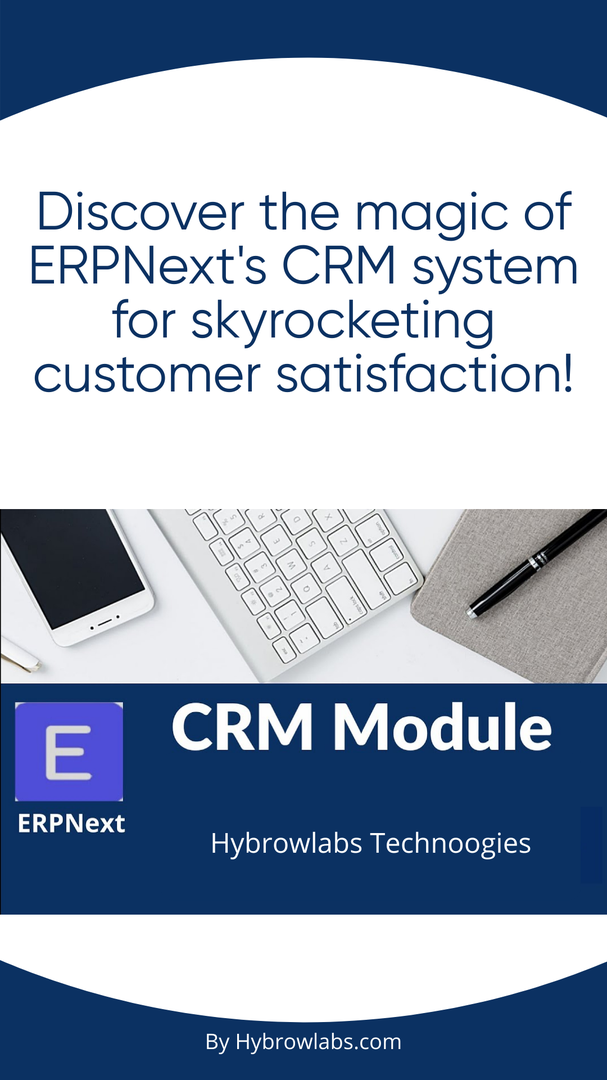
Have you ever wondered why some businesses have a loyal customer base, while others struggle to retain customers? The answer lies in customer satisfaction. In today's highly competitive market, businesses must prioritize customer satisfaction to succeed. And one of the most effective tools for achieving this is customer relationship management (CRM) software. Today, we will discuss how ERPNext's CRM capabilities can help businesses maximize customer satisfaction & how to Integrate CRM into ERPNext. So, sit back, relax, & join me on this journey to discover how ERPNext's CRM system can help you take your business to new heights of customer satisfaction!
Customer satisfaction is crucial & cannot be overstated. There is a direct relationship between how satisfied customers are & how much money a company makes. Your customer satisfaction (CSAT) score influences repeat purchases & customer loyalty, as well as word-of-mouth referrals, & helps to inform business decisions. You can know more here.
Why use ERP for CRM?
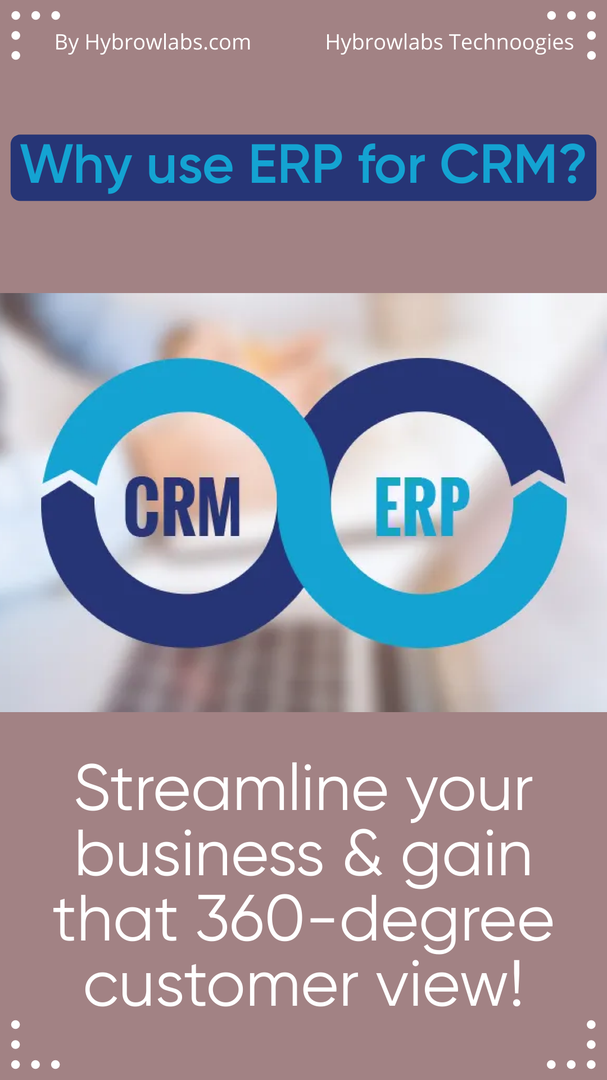
Businesses need an effective way to manage their customer interactions to make sure customer satisfaction & loyalty. ERP (Enterprise Resource Planning) systems offer an integrated approach to managing different aspects of a business, including CRM. By using an ERP system for CRM, businesses can streamline their customer interactions & gain a 360-degree view of their customers.
An ERP system provides a centralized database that allows businesses to store & access customer information from different departments, including sales, marketing, & customer support. This assures that all customer interactions are captured & can be analyzed to gain insights into customer behavior & preferences.
In addition, an ERP system allows businesses to automate their sales & marketing processes, from lead generation to customer follow-up. By automating these processes, businesses can save time & resources while ensuring that customer interactions are consistent and personalized.
How CRM increases customer satisfaction?
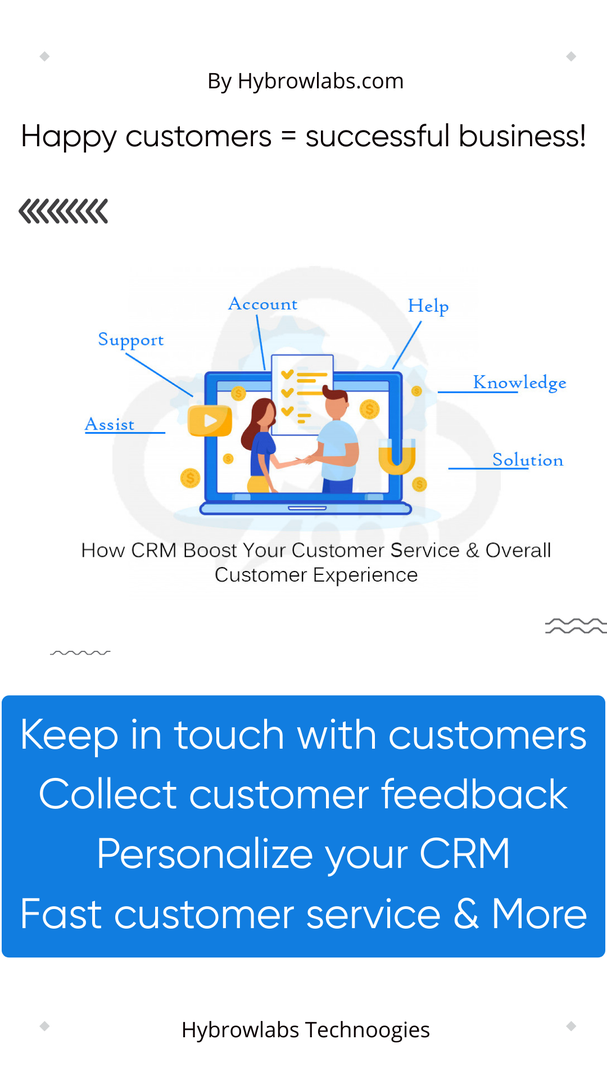
Satisfied customers are more likely to make repeat purchases, provide positive feedback, & recommend your business to others. They also tend to be more forgiving of mistakes, which can help lessen customer churn & improve retention rates. Here is how CRM increases customer satisfaction-
1. Keep in touch with your best customers:
CRM software enables businesses to keep track of their most valuable customers & stay in touch with them. This can help businesses nurture these relationships, offer personalized services, & reward loyal customers with special discounts & promotions.
2. Collect and act on customer feedback:
CRM software can help businesses gather & analyze customer feedback, which can be used to improve products & services. By listening to their customer's needs & preferences, businesses can adjust their offerings accordingly, which can lead to increased customer satisfaction.
3. Personalize your CRM and customer experience:
Personalization is key to enhancing the customer experience. CRM software can help businesses personalize interactions with customers by providing a 360-degree view of the customer's history, preferences, & requirements. This can enable businesses to offer personalized recommendations, promotions, & communications, which can lead to improved customer loyalty.
4. Offers fast customer service:
CRM software can help businesses streamline their customer service operations, allowing them to respond to customer inquiries & complaints quickly & efficiently. This can help businesses build a reputation for excellent customer service, which can lead to increased customer satisfaction.
5. Add convenience with online portals:
Online customer portals can offer customers 24/7 access to information about their accounts, purchases, & support tickets. This can help customers self-serve & get answers to their questions quickly, which can lead to increased customer satisfaction.
6. Better manage customer purchases:
CRM software can help businesses track customer purchases & preferences, which can enable them to provide more personalized offers & recommendations. This can lead to increased customer satisfaction & loyalty.
ERPNext Web Development For Customer Service Management:
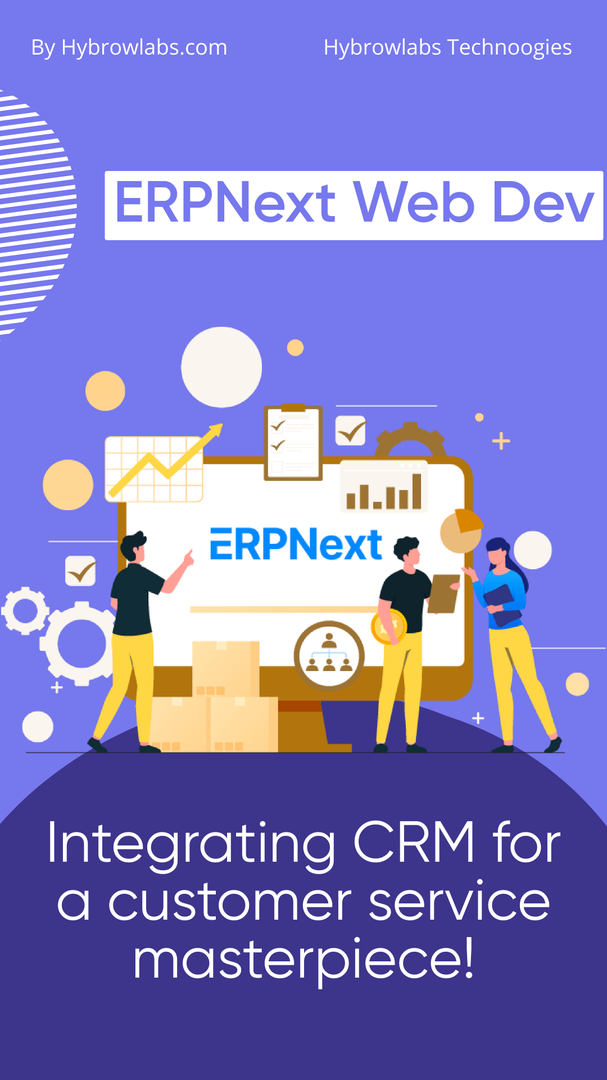
By integrating CRM into ERPNext, businesses can streamline their operations, reduce errors, & improve customer experiences. ERPNext's CRM system offers several features to enhance customer service management, including:
- Customer Profiles: Businesses can create detailed customer profiles that include contact information, purchase history, & other relevant data.
- Lead Management: ERPNext's CRM system allows businesses to track & manage leads, including assigning leads to sales team members & setting up automated lead nurturing workflows.
- Sales Stages: ERPNext's CRM system includes customizable sales stages to track the progress of leads & deals through the sales pipeline.
- Email Integration: ERPNext's CRM system integrates with email platforms, allowing businesses to send personalized emails to customers & track email engagement.
- Website Integration: ERPNext's CRM system can integrate with a business's website, allowing customers to fill out contact forms & interact with the business directly.
- Social Media Integration: ERPNext's CRM system can integrate with social media platforms, allowing businesses to manage customer interactions across multiple channels.
- Personalization Features: ERPNext's CRM system offers personalization features, such as custom fields & tags, to tailor the customer experience to individual customers.
- Reporting and Analytics: ERPNext's CRM system includes reporting & analytics tools to track customer interactions, measure the effectiveness of marketing campaigns, & make data-driven decisions.
Setting Up ERPNext CRM: Step-by-step guide:
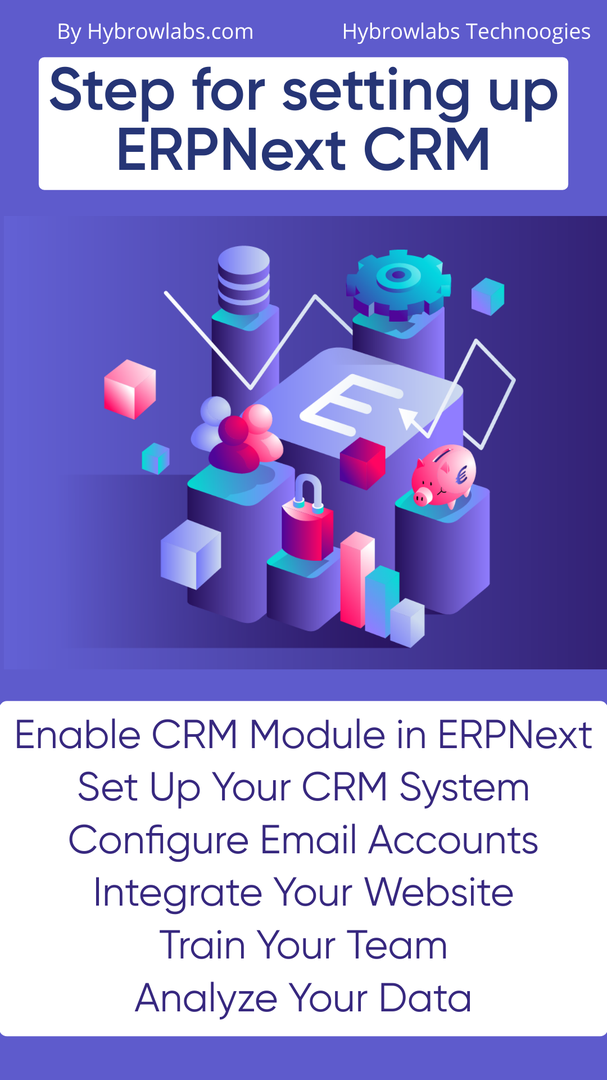
Certainly! Integrating CRM into ERPNext is a vital step for businesses looking to streamline their customer service operations & improve customer satisfaction. Here is a more detailed explanation of the steps involved in integrating CRM into ERPNext:
Step 1: Enable CRM Module in ERPNext:
The first step in integrating CRM into ERPNext is to enable the CRM module. To do this, log in to your ERPNext account & navigate to the "Modules" section. Click on the "CRM" module & enable it.
Step 2: Set Up Your CRM System:
Once the CRM module is enabled, set up your CRM system by creating customer profiles, adding leads, & setting up sales stages. This step is crucial to ensure that your team can effectively manage customer interactions & track their progress through the sales funnel.
Step 3: Configure Email Accounts:
To make sure that all email interactions with customers & are tracked in your CRM system, you need to configure your email accounts in ERPNext. Navigate to the "Email Accounts" section in ERPNext & set up your email accounts. This step will assure that all email interactions with customers are automatically synced to your CRM system.
Step 4: Integrate Your Website and Social Media Accounts:
Integrating your website and social media accounts with ERPNext is essential to ensure that all customer interactions are tracked in your CRM system. To do this, navigate to the "Integrations" section in ERPNext & set up the necessary integrations. For example, if you have a contact form on your website, you can integrate it with ERPNext to make sure that all form submissions are automatically synced to your CRM system.
Step 5: Train Your Team:
Training your team on how to use the CRM system is crucial for its success. Ensure that your team understands how to use the CRM system & its features effectively. Provide them with the necessary training & support to ensure that they can use the system efficiently.
Step 6: Analyze Your Data:
Once your CRM system is up & running, analyze your data regularly to identify areas for improvement & make data-driven decisions. Use the reporting & analytics features of ERPNext to track your team's performance, analyze customer behavior, & identify areas for improvement.
Conclusion:
We've covered a lot of ground in this article, exploring the importance of customer satisfaction in business, and how ERPNext's CRM capabilities can help businesses improve customer experiences. ERPNext's CRM capabilities offer a powerful tool for businesses looking to maximize customer satisfaction. By leveraging this technology, businesses can better manage customer interactions, improve the customer experience, and build lasting relationships. If you're looking to take your customer service to the next level, then consider integrating CRM into your ERPNext system today! For professional assistance in implementing CRM in ERPNext, consider using the Hybrowlabs ERPNext Development Service and Hybrowlabs Manufacturing ERPNext Service.
FAQ-
1. What is CRM, and why is it important for customer satisfaction?
CRM stands for Customer Relationship Management, & it refers to the practices, strategies, & technologies that businesses use to manage customer interactions & relationships. CRM is important for customer satisfaction because it enables businesses to better understand & serve their customers, leading to more positive experiences and long-term relationships.
2. What are some of the features of ERPNext's CRM system?
Some of the features of ERPNext's CRM system include customer profiles, lead management, sales stages, email integration, website integration, social media integration, personalization features, & reporting & analytics.
3. How does ERPNext's CRM system help businesses maximize customer satisfaction?
ERPNext's CRM system helps businesses maximize customer satisfaction by providing tools to manage customer interactions effectively, personalize customer experiences, & make data-driven decisions to improve customer satisfaction. By using ERPNext's CRM system, businesses can build lasting relationships with their customers, leading to increased sales & a better brand reputation.
4. What are the benefits of using ERP for CRM?
experiences, & better data management. By using ERP for CRM, businesses can better manage customer interactions & relationships, leading to increased customer satisfaction & long-term business success.
5. How can businesses integrate CRM into ERPNext?
Businesses can integrate CRM into ERPNext by enabling the CRM module & configuring it to meet their specific business needs. This may involve setting up customer profiles, lead management, sales stages, & other features to track and manage customer interactions effectively.



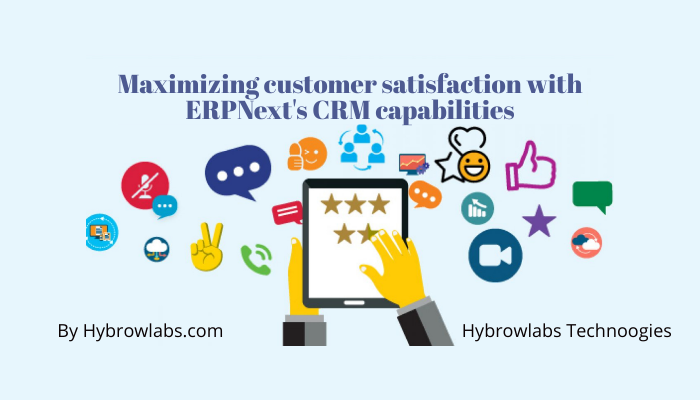


a3dc85.jpg)

.jpg)
fd8f11.png)

.jpg)
.jpg)